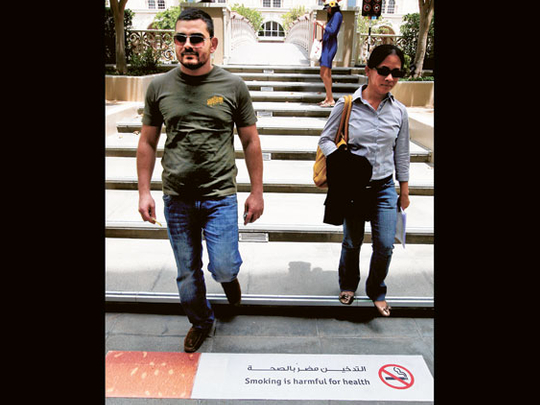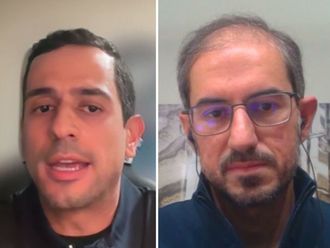
Dubai Refraining from doing ‘rituals' involved in cigarette smoking is key to being able to quit the habit alongside strong family and community support, a doctor said in a recent seminar on the ill effects of smoking.
More than nicotine — the addictive substance in cigarettes — the things that a smoker does before lighting one stick are what people should pay attention to.
"Cigarette smoking is a habitual thing and it has its rituals — you go to a particular place in a particular mood and that gives you the maximum [pleasure] of smoking," Dr Sreekumar Sreedharan, specialist physician at Aster Clinic, who has counselled no-smoking candidates as part of the Gulf News Stub It! campaign, said.
"[Smoking] gives that kind of psychological, or maybe emotional pleasure. It activates that kind of a system in the brain. And to derive the maximum experience from it, you have to do all these things," Dr Sreedharan added.
Imtiaz, 43, a no-smoking candidate who signed into the programme a month ago, said he has experienced the same thing.
Associated with a place
"I noticed that in the morning when I walk to a particular place, free space, automatically my hands go into my pocket. Once I start smoking, it will just continue," Imtiaz said.
But things are different for the Indian expatriate when he's back home.
"When I go to India, I hardly smoke. Automatically, for one week or two week, I stop. That means I can stop for 40 days, I normally go for 40 days from here. But when I land at Dubai airport, automatically I get the habit again," Imtiaz, who has been a smoker for the past five years, added.
The World Health Organisation lists tobacco as the only legally available and commonly used substance that will kill one third to one half of the people who use it. While it is common knowledge that smoking kills, many still smoke mainly because of external influences.
Peer pressure
"The most common thing that make people smoke is peer pressure from colleagues. That's the most common answer that I get," Dr Sreedharan said.
Kumar, 42, who has been smoking for two decades, said: "I only smoke in the office from 8am to 5pm. Once I come home, I have overcome that one — like a morning cigarette I don't need anymore." Kumar during the seminar said he aims to do more — to finally quit smoking and live a smoke-free life.
Making a serious effort and mental commitment to quit the habit, avoiding going to spaces where smoking is encouraged or spending time with smokers during breaks, plus having a strong family support can help.
"It has to be a community effort because this person [who wish to] stop smoking not only benefits himself but others also," Dr Sreedharan said.
Contact
The Gulf News Stub It! campaign is being held in association with the DM Healthcare Group. If you wish to join in this campaign please contact readers@gulfnews.com with your details and a line on why you wish to quit smoking.












